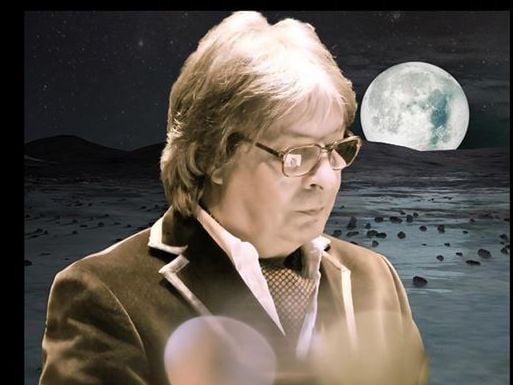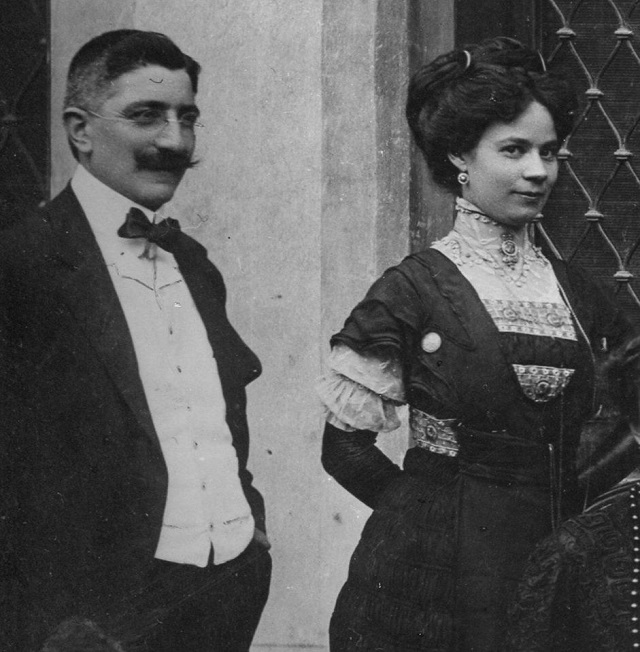The Armenian Mirror-Spectator. TREVISO/YEREVAN — Italian composer and conductor Gianni Ephrikian has collaborated with numerous artists of all musical genres. He has produced several records on his record label Holly Music. In 2015 and 2016 he received the International Artist of the Year and International Music Producer for instrumental music at the Los Angeles Music Awards. In 2017 he received an award in Las Vegas (the Best of Las Vegas) for instrumental music and in November 2017 again in Hollywood as “Outstanding International Conductor.” In 2019 he won the Film Music Contest with the soundtrack of Slovakian short film “Water for Africa.”
Ephrikian is a grandson of philologist Sukias-Hakob Ephrikian (1873-1952), originally from Akhaltsikhe, in the historic Javakhk region that gave many eminent representatives to the Armenian culture. Sukias Ephrikian was a member of Mekhitarian Congregation in Venice; his voluminous study Illustrated Dictionary of the Historic Homeland remains one of the most important Armenian dictionaries.
He met Italian Laura Zasso, whose grandfather, artist Giuliano Zasso (1833-1889) created some painting on Armenian mythology by order of Mekhitarians. Sukias-Hakob (Giacomo) lived an isolated life in Treviso, far from the Armenians, working in a printing house. This union devoted to Italian culture produced an eminent musicologist, composer and violinist, Angelo-Vahan Ephrikian (1913-1982). In turn, Angelo Ephrikian and his Venetian wife, Bruna, gave two professionals to Italian art: composer and conductor Gianni Ephrikian and film actress Laura Efrikian.
Dear Gianni, I was impressed by your music, regardless of your Armenian surname. Is it difficult to establish yourself as a composer in such a musical country as Italy?
It is quite difficult nowadays to establish oneself with a certain type of music both in Italy and in other countries for various reasons, the most important of which is due to the difficulties with dissemination which is currently very fragmented. Furthermore, to produce such music, a large orchestra is needed, therefore incurring unsustainable costs. Fortunately with the technology of digital libraries, today it is possible to make music at an excellent level.
For a long time, many musicologists and musicians were worried about the crisis in classical music. In your opinion, how right they are?
This is a problem that has been around for a long time, but it seems to me that there is an increasing orientation of the general public, all over the world, towards “classical music” and “contemporary classical music.”
In the 21st century composers continue making new operas. You are not an exception. Could you please speak about one of your last projects, the opera “On the Eighth Day”?
It is a modern opera on which I am still working. The cast includes: a narrator, a symphony orchestra, a small rock band, the choir and a ballet corps. The theme is the path of man, from the beginning, and the damage he has caused socially and ecologically with the sole objective of profit and power, bringing humanity close to an irreversible catastrophe but, in the end, there will be redemption. I have been working on this project for three years, but now I am almost at the end. It is a very expensive production. Now all that remains is to find a producer who will stage it.
Can we say that your musical skills you have been inherited from you father, conductor Angelo Ephrikian, who is more known as a musician who has rediscovered Vivaldi’s musical heritage?
Yes, I must say that my father Angelo Ephrikian was my greatest teacher of life and music; unfortunately he passed away very early when I needed him most. When I was a child he was working on the Vivaldian Rediscovery and I grew up immersed in Baroque music and beyond. After studying piano and music theory, I applied myself a lot to the study of harmony and composition (not at the Conservatory) and I started writing for orchestra in the early 1970s.
As far as I know your full name is Gian Claudio Vartan… I assume, it was your grandfather Sukias-Hakob Ephrikian who gave you and your sister Armenian names – Vartan and Gaiané.
It was my grandfather who chose the names of Vartan for me and Gaiané for my sister Laura. And my father’s Armenian name is Vahan.
What can you tell about your grandfather? I read he was arrested during World War II. Have you any idea why?
During the last war my father and mother were partisans in the mountains and my father was inscribed on the list of those who were to be shot by the fascists. When those of the political police came home to arrest him, they did not find him, and then they arrested my grandfather Hakob who, however, was released after a few days.
When in 1949 your father had given his first concerts in Milano, at a reception given by the Armenian community, said he was proud of his Armenian heritage. What about his son?
Today both my sister and I we are proud of our Armenian origins and our names. Unfortunately my grandfather did not want to teach my father the Armenian language because he did not want him to feel like a refugee in Italy but to feel Italian while never denying his origins; therefore we grandchildren consequently have never been able to learn the Armenian language.
Do you know about Armenian music?
It is generally a beautiful music, full of pathos and suggestion, with wonderful evocative sounds.
Have you ever been in Armenia? It will be great to host you with a concert of your works…
Two or three years ago I wrote the music for “The day of memory” of the Armenian Genocide. I will be very happy, as soon as possible, to come to Armenia and offer you some of my music again!!! Actually it was in my plans to travel to Armenia and I hope to do so as soon as this horrible.
By Artsvi Bakhchinyan
Special to the Mirror-Spectator























































